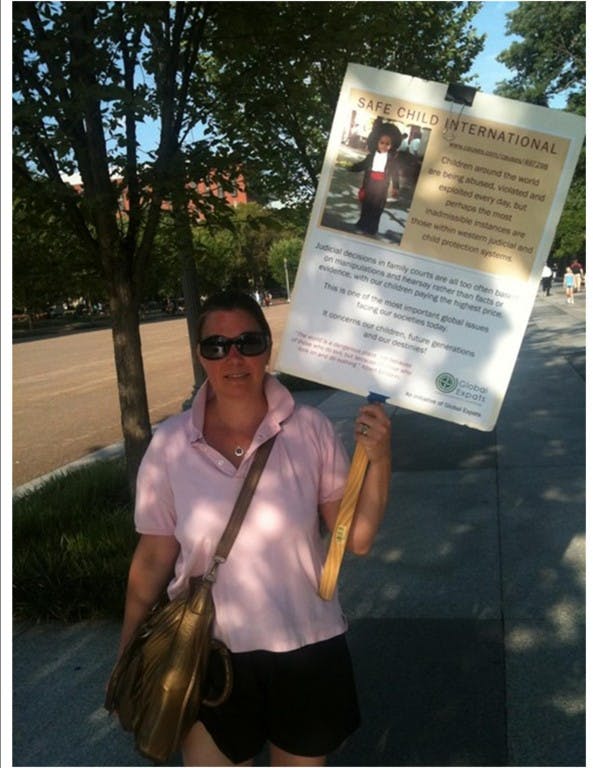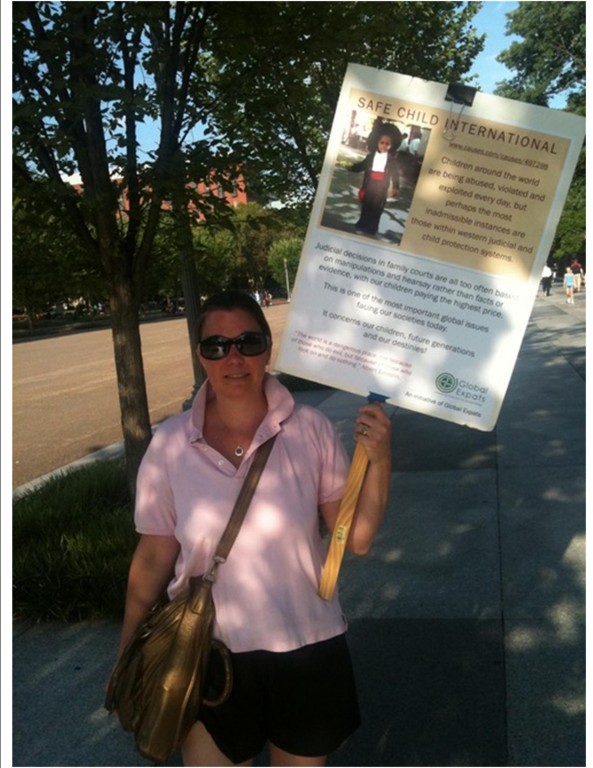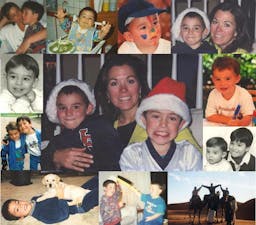THE CASE OF SYLVINA BASSANI – SPAIN – Assassinated by her Ex-husband - April 10, 2008
May 4, 2021
Story



On April 10, 2008 José Javier Lacasa knocked on the door of the home of Andrés Marzal shot him to death then entered the kitchen of this home and shot and killed his ex-wife, Sylvina Bassani. He then called emergency told them there were two dead bodies, and maybe three then shot himself to death; all in front of his 4 year old son.
This child is now under the care of his grandparents who declared “We are strong for him. If you know what this child has suffered, it is incredible…..He saw everything and afterwards hugged his dead mother’s body; this is how he was found one or two hours later. If they (the Spanish judicial system) had done everything correctly and with care, our daughter would still be alive today. How many cases like this are there (in Spain?)”
Unfortunately, the answer is all too many.
Sylvina’s case is far from the exception in Spain. What I would like to add here is that it took the police several hours to respond to a homicide/suicide call for a woman who had a restraining order against her ex-husband on her, with this poor baby all alone next to his dead mother’s body?!?
COMPETENCE OF SPANISH COURT PSYCHOLOGISTS IN QUESTION
The court appointed psychologists Juan Ignacio Alonso and María Isabel Tagle who examined Sylvina in her divorce proceeding within the “specialized” domestic violence court of Torrejón de Ardoz declared “from a psychological view-point one cannot talk about maltreatment within the home. We do not believe the woman, she demonstrates contradictions and incoherence and we recommend psychological treatment to adequately work out her conflicts with her husband and learn to open herself up to paternofilial.”
Additionally, in the report of these psychologists it stated that “Javier Lacasa, who had attempted to commit suicide the day that the guardia civil arrest him and admitted to having thrown a television set on the floor because his wife wanted to travel to Boston, was found to be “normal.”
Sylvina’s lawyer, Garcia Bermejo said that “she was panicked. She said he (Lacasa) was capable of anything. Each time she heard a car stop at her door her heart would jump with fright, and she spent her time looking out of the window…At least five times Lacasa violate the order of protection….Sylvina could not understand why no one did anything….In March 22, 2007 the judge, Gema Fernández handed down the divorce decree giving Sylvina custody of her son and visitation rights to the father, even though he had a restraining order on him handed down by the same judge. Her lawyers are convinced that it was because of the father’s visits with the son that he was able to find the new domicile of Sylvina.”
Fernando Chacón Dean of Colegio de Psicologos de Madrid stated “her (Tagle) is known (here,) because no one has more complaints than she (all by women.) Now we will always have the doubt if we couldn’t have done more to avoid these deaths,” and the only response of the regional government to all of these complaints was a verbal admonishment to Tagle asking her to “moderate her ways and to continue with her exquisite manner and work.” Since February 13 2007 Tagle was removed from the Colegio de Psicologos of Spain, which forbids her to work in the private sector, but apparently still exercises as a court appointed psychologist in the juzgado de Torrejon de Ardoz.
INCOMPETENCE WITHIN JUDICIAL PROCEEDINGS
A report by the Comision Disciplinaria del Consejo General del Poder Judicial (CGPJ) after a routine inspection of the juzgado de Torrejon de Ardoz realized in November 2007 “detected that the work of this staff was totally inept with false assumption of competence by the Ministerio Fiscal.”
After the assassination of Slvina they are claiming that the problem within this juzgado is over-work, and their only solution was to add a few more civil servants to the staff.
Amparo Piñar, president of the Association of Women Against Domestic Violence of Granada, stated that “it would be imprudent to tell the victims not to denounce their aggressors, but it is (imprudent) to urge them to denounce them, as look what happens when they do!”
THE PSYCHOBIOLOGICAL CONSEQUENCES OF DOMESTIC ABUSE
Study after study show that domestic abuse is one of the prime contributing factors in mental illness and substance abuse, but mental health care professionals, as do physical health care professionals, consistently treat the symptoms rather than the root of the illness. All they do is give a label to the symptoms and offer drugs to mask or supress them.
Daniel Goldman in Social Intelligence states “under stress the adrenal glands release cortisol, one of the hormones the body mobilizes in an emergency….But, if our cortisol levels remain too high for prolonged periods, the body pays a price in ill health….The combined neural impact of too much cortisol is threefold: The impaired hippocampus learns rather sloppily over-generalizing fearfulness to details of the moment that are irrelevant… The result: the amygdale runs rampant, driving fear, while the hippocampus mistakenly perceives too many triggers for that fear. In humans that condition of vigilance and over reactivity has been called post-trauma stress disorder (PTSD)….”
An American soldier who served in Iraq, Kristoffer Goldsmith, who suffers PTSD, stated “It’s a sane reaction to an insane situation!” and he couldn’t be more right. What could be more stressful than constant fear for the safety and well being of ones children?!?!
The only way I kept my sanity through this my own nightmare was massive intake of vitamins and minerals. I pulled out my Adelle Davis and Linda Clark books and just followed their advice; and at the height of my custody battle spent 6-7 hours of STEP and body-combat classes at my gym. Much more effective than doping up on prescription drugs I can assure you.
In "Know Your Nutrition" by Linda Clark she refers to Dr. Roger J Williams work in “supernutrition” and states that “it can eliminate or reduce many kinds of mankind’s serious health problems, including mental illness, cancer, birth defects, premature aging, heart disease, obesity and arthritis….” Linda Clark further states “It is interesting that the Hunzas and other tribes who are healthy have had no crime, in addition to having no need for doctors. They have no need for policemen, jails or other correctional or mental institutions. Their outstanding characteristic is that they are cheerful. They are never known to fight or to feel depressed. They feel good, are bursting with vitality and health and can cope with any problem..."
"Utopia" communities such as these do and have existed during the history of mankind, as document and studied by James Prescott, Colin Turnbull, Michael Cooke and Sir Thomas More to name a few. Should not academias and policy makers alike start studying how and why some communities are able to live in peace and harmony while others live in perpetual conflict and violence?
Quenby Wilcox
For more information on the case of Sylvina Bassani visit the following articles:
http://www.elpais.com/articulo/sociedad/militar/mata/ex/esposa/pasividad...
- http://www.interviu.es/reportajes/articulos/tengo-miedo.-nos-van-a-hacer...
- http://www.elpais.com/articulo/sociedad/psicologa/caso/crimen/Alovera/ti...
- http://es.groups.yahoo.com/group/Mandefender/message/17860
- http://josefaparedes.com/tag/sylvina-bassani/
- http://ipsnews.net/news.asp?idnews=42397
- http://www.diarioperfil.com.ar/edimp/0300/articulo.php?art=10194&ed=0300
- Report by Amnesty International - www2.ohchr.org/english/bodies/cat/docs/ngos/AI_Spain43.doc




